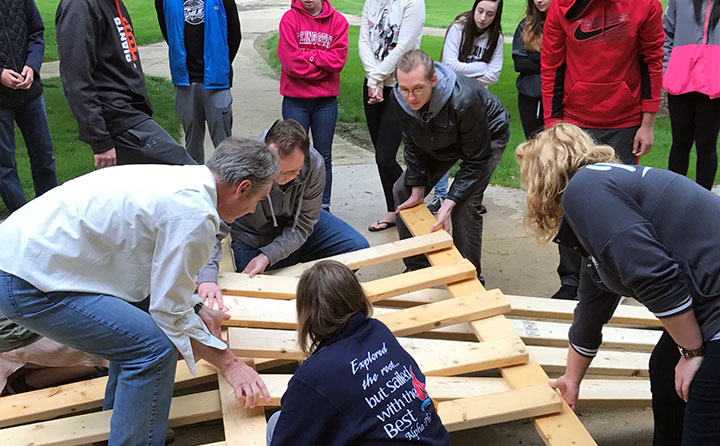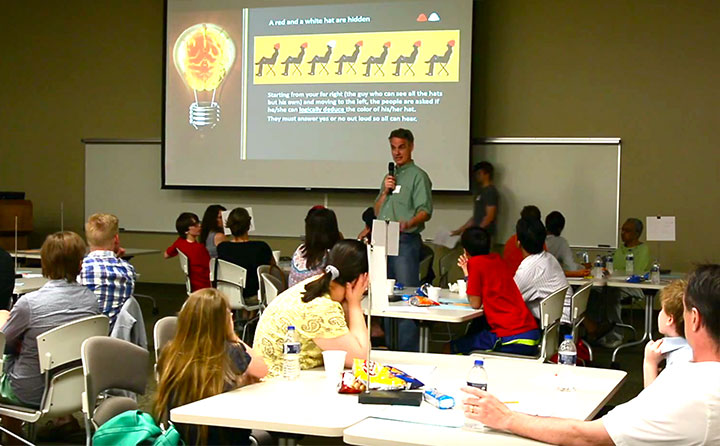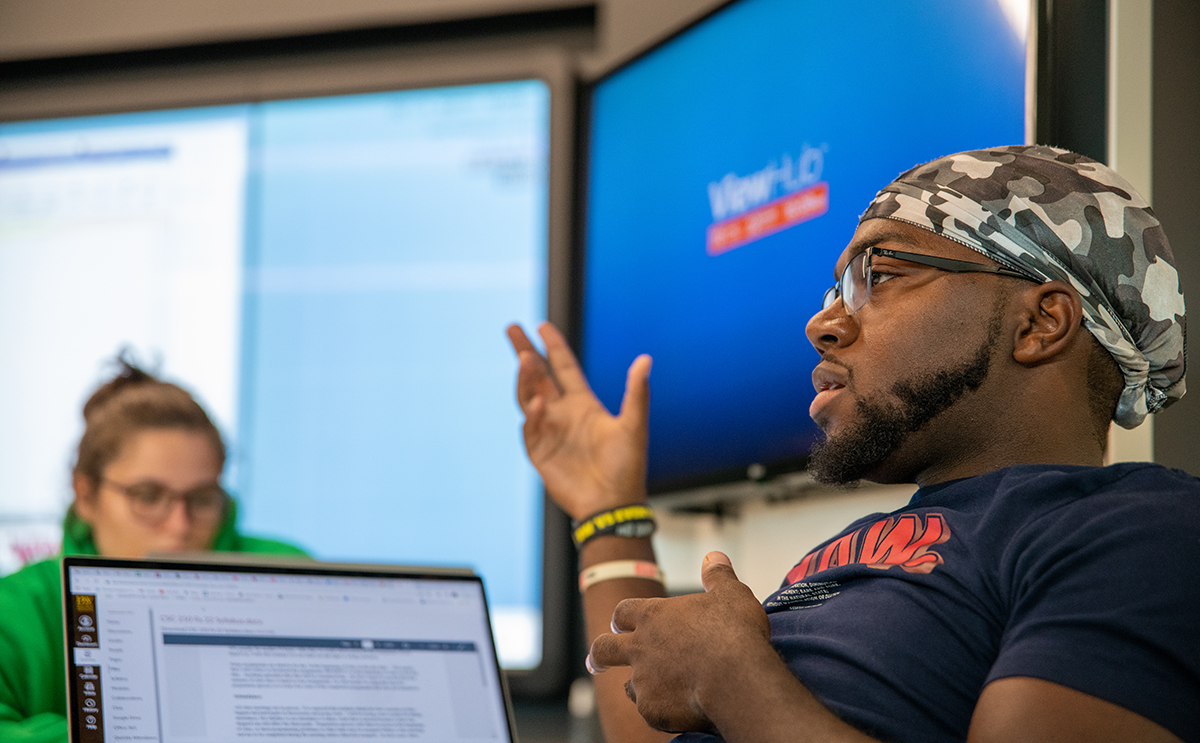BW professors tout problem solving skills as key to success
 Problem
solving
skills
are
today's
key
to
career
success.
In
study
after
study,
top
employers
such
as
Google
report
that
they
value
the
ability
to
think
critically
and
solve
problems
over
so-called
"hard
skills."
Problem
solving
skills
are
today's
key
to
career
success.
In
study
after
study,
top
employers
such
as
Google
report
that
they
value
the
ability
to
think
critically
and
solve
problems
over
so-called
"hard
skills."
As a longtime champion for problem solving as crucial to career preparation, BW physics professor Dr. Ed Meyer has worked diligently to incorporate classes into the university curriculum. In 2002, his efforts led to BW becoming the first university in the world to offer a problem solving course for credit. Now, two courses, Quantitative Problem Solving and General Problem Solving, have been added to the "core" offerings available to all students at BW.
Flexing mental muscle
Meyer, who has co-authored a textbook on problem solving techniques in the classroom and given workshops on the topic across the world, says these classes develop a student's ability to think hard and tackle perplexing problems. They prepare students for success not only by developing mental stamina, but by helping to provide a firm foundation in critical skills including team work, consensus building, adaptability and resourcefulness.
"When you think really hard about a problem, you develop mentally. Your brain grows; more neurons are added and the number of connections between them increases. Problem solving is a skill," states Meyer.
"After I took the theoretical physics class taught by Dr. Meyer and gained problem solving skills, I noticed that in every single other class I was much more curious about everything that was going on," says Kaylee Yuhas '16.
Skills prized by employers
"What students learn is something they can carry over to when they get a job. Employers aren't necessarily hiring someone because they can solve a quadratic equation. They're hiring people who can solve their problems and actually contribute and come up with new and innovative ideas," Yuhas continued.
Professor Meridith Witt, who joined the BW physics faculty in 2009 and co-teaches the problem solving courses, adds, "We gear most of the problem solving class activities toward group work, so the students have plenty of opportunity to grow in their communication skills, their patience and their empathy.
"We make clear to the students from day one that it does not matter what they know - just what they are willing to figure out," she continues. "When students can push through frustration and come to the table with a creative idea after trying numerous other approaches to solve a hard problem, I can't help thinking of the bright future before them."
Problem solving events for the community
 In
addition
to
the
classes
taught
during
the
academic
year,
Meyer
and
Witt
extend
the
opportunity
to
learn
problem
solving
skills
to
younger
students
by
offering
summer
programs
through
their
Summer
Gedanken
Institutes
for
Problem
Solving.
In
addition
to
the
classes
taught
during
the
academic
year,
Meyer
and
Witt
extend
the
opportunity
to
learn
problem
solving
skills
to
younger
students
by
offering
summer
programs
through
their
Summer
Gedanken
Institutes
for
Problem
Solving.
They will also host a free Problem Solving Open House for all ages on April 20, from 7 to 9 p.m. at BW's Center for Innovation & Growth (CIG). The event is open to the community but children under the age of 18 must be accompanied by an adult. Please RSVP to Meridith Witt at mwitt@bw.edu.
Learn more in this video on the value of problem solving.



